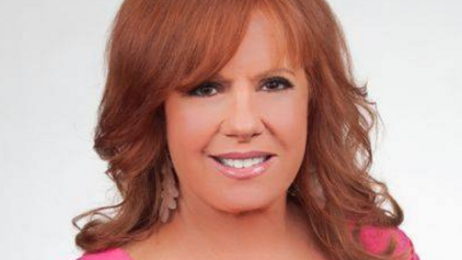Social v Search | Small Business Advertising Strategy in NC
[ad_1]
With so many different platforms to choose from, small business owners can sometimes be overwhelmed when planning their advertising strategy. When developing your small business advertising strategy, you might place an emphasis on conversions or cost as your primary drivers, but it’s not always that simple.
Search advertising can drive conversions for people already in the buying process, giving you a higher chance of a quicker conversion. Social advertising can put you in front of a large audience on a smaller budget. They both have their merits, but which is the right option to choose when building your small business advertising strategy?
What is social advertising?
Social advertising, or paid social, is when businesses pay to have their advertisements on a variety of social media networks, including Facebook, Instagram, Twitter, and others. Paid social is sometimes contrasted with organic social media, which is when a company or brand publishes on social media for free alongside everyone else’s posts.
With organic social media, your post only goes in front of people who have already liked your page or the pages of those you tagged or hashtagged. With social advertising, you can pick and choose your audience no matter how small your social media following is.
Some of the more popular social media platforms to advertise on include:
- Youtube
- Snapchat
According to Statista, the average person spends roughly 147 minutes per day on social media platforms. That’s nearly two and a half hours every day spent scrolling through newsfeeds, watching stories, and clicking on ads. It’s no surprise that small businesses are turning to social media advertising to get their products and services in front of potential customers.
So, other than large, guaranteed audiences, what else does social media advertising have to offer?
What are passive consumers?
Passive consumers are people who are not actively interested in buying a product or service. They might see a social media ad and be intrigued, but they’re not necessarily looking for that specific product or service.
They could be at the beginning of the buying cycle or even just browsing without any intent to buy.

Social Media Ads are Affordable
Compared to paid search advertising, paid social advertising typically has a much cheaper cost per click (CPC) than search advertising. You can get your brand, product or service in front of tens of thousands of consumers with a smaller budget. You can also set a daily or lifetime budget for your social media ads so you never overspend.
Social Media Ads are Targeted
As we mentioned before, one of the benefits of social media advertising is that you can target small, specific audiences with laser precision.
For example, if you’re a small business that sells women’s clothing, you can target ads to only show up for women ages 21-35 who live in your city and who have engaged with similar brands in the past.
You can also target people based on interests, behaviors, and even life events like a recent move or change in relationship status.
You Have a Variety of Social Ad Types to Choose From
Depending on your small business goals, there are a variety of social media ad types to choose from.
The most common social media ad types are:
– Static image ads
– Video ads
– Carousel ads
– Slideshow ads
– Collection ads
Each social platform also has its own unique ad format that you can take advantage of.
For example, Facebook’s lead generation ads let small businesses collect leads directly through their Facebook page without having them take the extra steps to go to your website.
Instagram Stories ads let you create 15-second video ads that show up in between people’s stories and disappear after 24 hours.
You can also use Snapchat filters and lenses as a form of social advertising for your small business.
Social Advertising is Great at Filling to Top of Your Marketing Funnel
A marketing funnel is a tool small businesses use to map out the journey a customer takes from becoming aware of your brand to becoming a paying customer.
The top of the funnel, which is focused on building awareness and interest in your product or service, requires getting in front of consumers with engaging visual content (such as videos, images, etc.) at a high frequency. Due to the nature of the ad types, targeting capabilities and cost of social media advertising, social media is perfect for building the top-of-the-funnel prospects.
Now that we’ve looked at some of the advantages of social media advertising, let’s take a look at a few of the disadvantages.
Social Media Advertising Can Be Time Consuming
Creating social media ads requires small businesses to create or find engaging visuals (images or videos) and copy to go along with them. If you don’t have someone on your team who’s experienced in graphic design or video editing, this can take even more time.
There are a Lot of Social Media Advertising Options
Depending on your small business goals, there are a lot of social media advertising options to choose from. This can be both good and bad.
It’s good because you have a lot of options to choose from and can experiment with different types of ads to see what works best for your small business.
The bad part is that it can be overwhelming to try and keep track of all the different options and figure out which one is right for your small business. LinkedIn advertising, for instance, is meant to target business(B2B), while Facebook and Instagram are focused more on the individual consumer (B2C).
Social Media Ads Aren’t Great at Converting
While social media advertising is great for building awareness and interest in your small business, it’s not always the best at converting prospects into paying customers.
This is because social media platforms are designed for people to consume content quickly and move on. This means that you have a very short window of time to get your message across and get a click-through to your website or landing page.
If you’re looking to convert prospects into paying customers, search advertising might be a better option for your small business.
What is search advertising?
Search advertising is a type of online advertising that small businesses use to get their website to show up in the search engine results pages (SERPs) when people are searching for keywords related to their business.
Search advertising is a great way to target people who are already interested in what you have to offer and are actively searching for it.
For example, if you’re a small business that sells women’s clothing, someone who searches for “women’s clothing stores near me” is likely further along in the buying cycle than someone who sees a social media ad for your store.
This is because the person who’s searching for “women’s clothing stores near me” is already interested in buying women’s clothing and is just trying to find a store that sells it. They are an “active consumer”.
What are active consumers?
Active consumers are people who are actively interested in buying a product or service. They are typically further along in the buying cycle than someone who sees a social media ad. They are already looking for a specific product or service and are just trying to find a store that sells it.

What are the strengths Of search advertising?
Users Typically Have High Intent to Convert with Paid Search
Since users have to actively search for the keywords you’re targeting, they already have a high intent to convert.
This is in contrast to social media advertising, where users might see your ad while they’re scrolling through their feed but aren’t necessarily interested in what you have to offer.
Search advertising typically engages users toward the middle to bottom of the marketing funnel in what are typically called the consideration and conversion phases.
Paid Search Ads Are Highly Targeted
Search ads are also very targeted because you can target specific keywords that users are searching for.
You can also use negative keywords to make sure your ad doesn’t show up for searches that aren’t relevant to your small business. For example, if you sell women’s clothing, you might want to use negative keywords like “men’s” and “boy’s” to make sure your ad doesn’t show up for those searches.
Google is By far the Most Prominent Search Engine
While there are other search engines like Bing and Yahoo, Google is by far the most prominent. In fact, Google has a 91.96% market share in the global search engine market.
This means that if you want to do search advertising, you’ll only need to think about one platform to choose from.
What are the weaknesses of search advertising?
Search Advertising is not Typically Very Engaging
While search advertising is great for conversion, it’s not always the most engaging. This is because ads are usually text-based and users have to actively click on them to see your small business’ website.
This means that you don’t have a lot of room to be creative with your ad and you have to rely on your small business website to do the heavy lifting when it comes to engagement.
Search Advertising can Be Expensive
Another downside of search advertising is that it can be expensive. This is because you typically have to pay per click (PPC) and the competition for keywords can be fierce.
For example, if you’re a small business that sells women’s clothing, you might have to pay a higher price per click for the keyword “women’s clothing” than a small business that sells men’s clothing.
This is because there’s more competition for the keyword “women’s clothing” and it’s a more popular search term.
Search Advertising Requires Landing Pages to be SEO Optimized
Finally, another downside of search advertising is that it requires your website’s landing pages to be SEO optimized.
If you don’t have an SEO-optimized landing page, Google will likely place competitors’ landing pages that are SEO-optimized ahead of you in the ranking.
Before venturing into search advertising, you’ll have to invest time and resources into SEO if you want to be successful.
So, which is right for your small business advertising strategy?
While every advertising strategy is different depending on the lifecycle of the business, the online advertising experts at TheeDigital believe in developing a conversion ecosystem that runs on its own.
Focusing on just search advertising will leave you directly at the whim of consumer search volume and patterns while focusing only on social will leave your business out of the discussion when prospects are ready to buy.
In short, we believe that all small businesses should be using BOTH social and search advertising tactics. That way, you can take advantage of the active, conversion-ready prospect with search advertising, while building awareness of your business among those passive consumers not yet ready to buy with social advertising tactics.
[ad_2]
Source link









